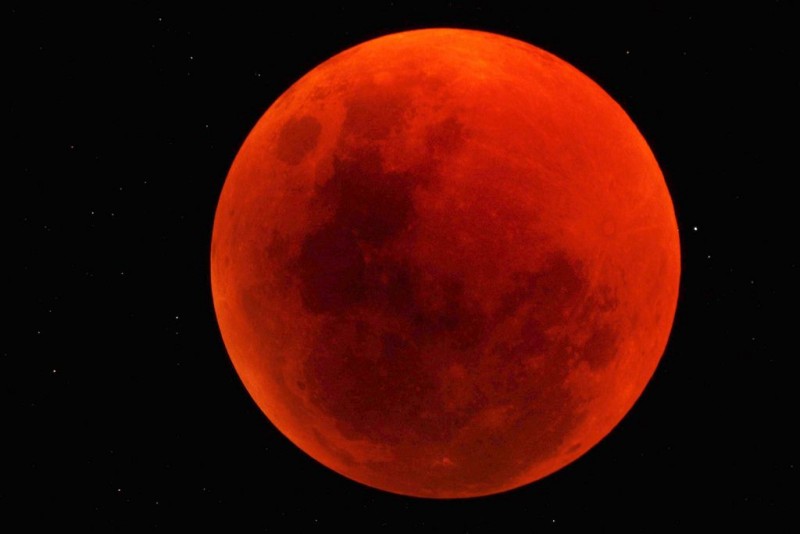
The first total lunar eclipse of 2021 on May 26. The Blood Moon on May 26 will last for 14 minutes and 30 seconds. Total lunar eclipses are also known as Blood Moon since the moon appears slightly reddish-orange. The colour of the moon on this day depends on dust particles and different wavelengths of colours reaching the surface of the moon.
Where can you see the Blood Moon on May 26?
Sky watchers in parts of Australia, New Zealand, western United States, South America, the Indian Ocean, the Pacific Ocean, the Atlantic Ocean and parts of South-East Asia can view this celestial event.
After May 26 lunar eclipse, sky gazers can get to see the annular solar eclipse on June 10, Partial lunar eclipse on November 19 and Total solar eclipse on December 4.
What is a total lunar eclipse?
Total lunar eclipses take place when the Sun, the Moon and the Earth are aligned in a straight line. The Earth comes in between the Sun and the Moon and in turn, blocks the sun rays from reaching the moon in case of a total lunar eclipse.
This eclipse occurs only on the Full Moon. You can, however, look at a lunar eclipse with a naked eye, unlike the solar eclipse.
What is Blood Moon?
As per NASA, the blood moon takes place in case of a lunar eclipse when the Earth comes in between the sun and the Moon to block the rays of the sun from reaching the moon.
"When this happens, the only light that reaches the Moon's surface is from the edges of the Earth's atmosphere. The air molecules from Earth's atmosphere scatter out most of the blue light. The remaining light reflects onto the Moon's surface with a red glow, making the Moon appear red in the night sky".
India: Monsoon to hit soon, may receive heavy rain on this day
IMD alert over 'Cyclone Tauktae', Rahul said, 'Congress workers will help the needy'